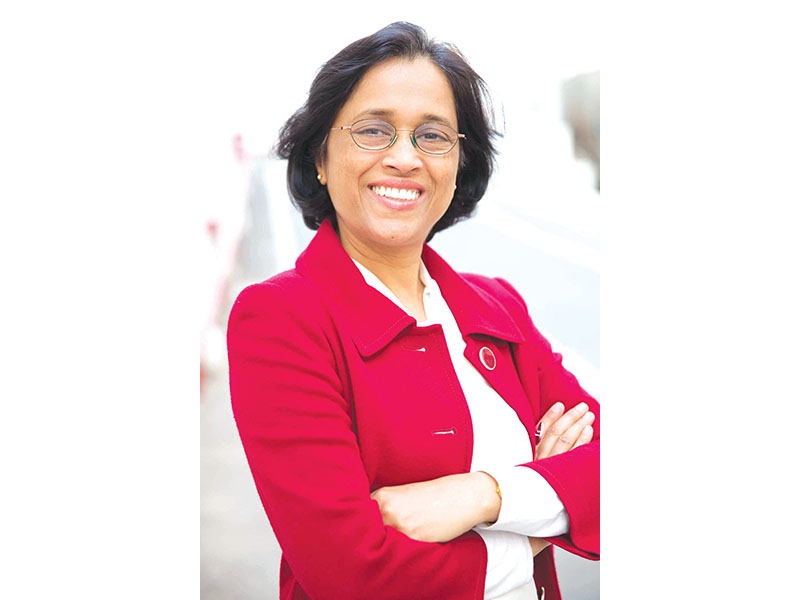Geeta Gandhi
Dr. Jagdish Gandhi, founder-manager of the City Montessori School (CMS), Lucknow, who passed away in January 2024 at age 89 is mourned by thousands of school leaders, teachers and students countrywide whose lives he touched. The major legacy he has left behind is 65 years of relentless effort to promote global citizenship education.
Born in 1934 as Jagdish Agarwal in Aligarh, Uttar Pradesh, in class X he read an essay by Mahatma Gandhi on how students should spend their summer vacations. This prompted him to begin social service activities such as sensitising people about the ill-effects of alcohol and gambling in neighbouring villages which gradually led to people naming him ‘Jagdish Gandhi’, a nomenclature he proudly adopted and persisted with lifelong.
Another formative influence was a speech ‘Necessity of World Government’ by Raja Mahendra Pratap Singh which left a lasting impression on young Jagdish, who became convinced that the world needed global governance to become peaceful and prosperous. Burning with zeal to change the world, against the wishes of his family he enrolled in Lucknow University where his simple living and high thinking won him the post of president of Lucknow University’s Students Union in 1958.
In July 1959, he co-promoted CMS, Lucknow with wife Bharti. The founding motto of the school inspired by Mahatma Gandhi and Vinoba Bhave’s teachings was ‘Jai Jagat’ (‘victory to the world’). Since then, CMS has steadily evolved into the world’s largest one-city primary-secondary school (certified by Guinness World Records) with an enrolment of 65,000 students in 21 campuses across Lucknow.
In 1969, he ventured into politics to give wing to his passion for a world government to establish global peace and harmony, and was elected to the Uttar Pradesh legislative assembly. In December of 1974 at a World Peace Through Education conference in London which the duo organised and which attracted participants from 47 countries, Jagdish and Bharti learned about the scripture of the Baha’i Faith which also envisions global governance, peace, spirituality and virtuous living. However, the tenets of the Baha’i creed discourage followers from engaging in party-politics, prompting Dr. Gandhi to abjure politics forever.
Dr. Jagdish Gandhi
Freed from the preoccupations of politics, Dr. Gandhi set about expanding CMS and investing its students with human and spiritual education, with strong emphasis on global citizenship. In the mid-1990s, he constructed a World Unity Convention Centre on all CMS campuses to host annual international events for school contingents from all states of the Indian Union and foreign countries. While these assemblies were subject-focused (e.g, GEOFEST for geography; MACFAIR for computers; IYMC or International Youth Mathematics Convention, etc), a prime objective was to promote cross-cultural understanding and harmony among children from India’s 29 states and countries abroad. Dr. Gandhi’s legendary warmth and hospitality and the growing reputation of these events attracted children from across India and between five-30 foreign countries at 20 annual festivals convened in CMS.
From 1999, Dr. Gandhi also introduced an annual International Conference of Chief Justices of the World to bring the world’s judiciary together to discuss how a more congenial global governance architecture can be created and ways and means to develop/implement international laws to ensure global peace, justice and prosperity. By 2023, this annual conference had attracted 1,450 Supreme and high court judges from 131 countries.
Today Planet Earth is confronted with existential climate threats of change, global pandemics and other issues that require supra-national solutions. Dr. Gandhi discerned the need for global cooperation and governance in 1959 when he chose ‘Jai jagat’ as the CMS motto and introduced several trans-national exchange initiatives including Children’s International Summer Villages (CISV) program; International School to School Experience (ISSE) program; the Aao dosti karein pen-friends program between India and Pakistan children; and a Generation Global international video-conferencing program for students. Moreover, the CMS tableau in the annual Republic Day parade in Lucknow invariably evangelises world unity and elimination of race, colour and creed discrimination.
For his efforts in the causes of education and global peace and harmony, Dr. Gandhi received numerous prestigious awards including honorary doctorates from universities in Peru, Argentina, Mongolia and Ireland during his lifetime. Among the awards conferred upon him were Unesco Prize for Peace Education 2002; the Dalai Lama’s Hope of Humanity Award; and the Gusi Peace Prize. Other awards were the Nuclear-free Future Award (2004), the Derozio Award of CISCE (1999), the World’s Children’s Prize for the Rights of the Child, Sweden (2004) and recognition by Peaceful Schools International, Canada (2004) to CMS for its “contribution towards building a global network of peaceful schools”.
Dr. Gandhi’s passing has orphaned 65,000 children, 4,800 teachers and staff of CMS, Lucknow as also his devoted wife and CMS co-promoter Dr. Bharti Gandhi, daughters Prof. Geeta Gandhi Kingdon, Dr. Sunita Gandhi and Prof. Nita Gandhi Forouhi and son Vinay Gandhi. Inspired by his ideals and deeds in the causes of high quality K-12 education, global governance, peace and social harmony, we intend to carry his mission forward.
